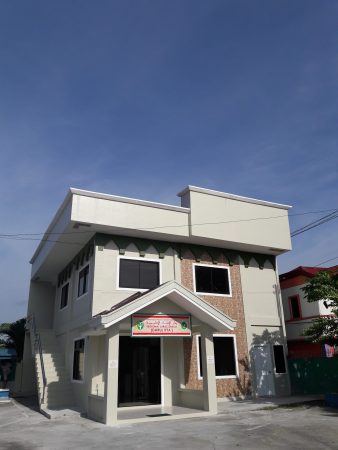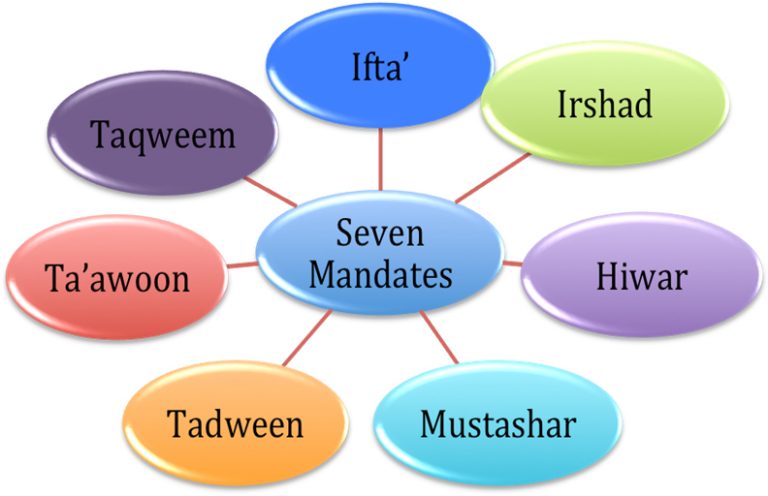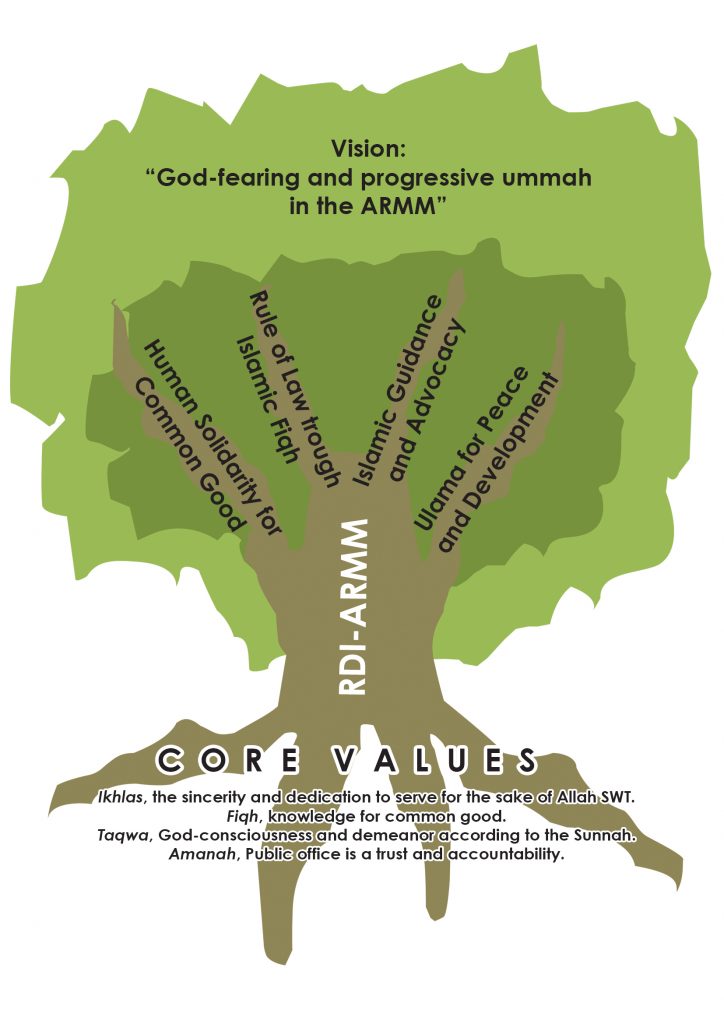BRIEF HISTORY OF RDI
The Regional Jurisconsult (Darul-Ifta’) came into existence by virtue of Muslim Mindanao Autonomy Act No. 323 signed into law by the Autonomous Region in Muslim Mindanao Governor Hon. MUJIV S. HATAMAN, November 11, 2015. The law which serves as the charter of the Regional Darul Ifta repealed Executive Order No. 09 issued by the ARMM Regional Governor in 2014 creating the Technical Working Group for the creation of the Regional Darul Ifta’ which primarily aims among others to promote Islamic solidarity locally and globally, upheld rule of law through Islamic jurisprudence, strengthen Islamic preaching and guidance and utilize knowledge and social capital of the Ulama for common good. It is empowered to establish a consultative body for policy making and guidance and to promulgate, adopt and implement policy guidelines, procedure, rules and regulations necessary for the proper management and operation of the office of the Jurisconsult in the exercise of its mandate.

LEGAL BASIS
In 2014, Executive Order (EO) 09 was signed by ARMM Regional Governor Mujiv S. Hataman providing for a transitional Office of the Jurisconsult while the Regional Legislative Assembly (RLA) considers its permanent establishment.
In 2015, Muslim Mindanao Act (MMA) 323 passed by the Regional Legislative Assembly (RLA) established the Regional Darul-Ifta’ (RDI) in the Autonomous Region. This is based on the prescription of the Section 20, Article VIII (Administration of Justice), Republic Act 9054 (Expanded Organic Act).
The ensuing Implementing Rules and Regulations (IRR) was approved by ARMM Regional Governor Mujiv S. Hataman on March 2017 after its publication in a regional broadsheet (Mindanao Cross).
Below is the approved Implementing Rules and Regulations of MMA Act 323 or the Darul Ifta’ Act of 2015
MANDATES
Pursuant to Section 10, Rule 4 of the IRR, the RDI shall be guided by the following mandates in the performance of its duties and functions and in the formulation of its policies, projects and projects. The summary of these seven mandates is reflected in Figure
1. Ifta’: Promulgate and issue fatawa (legal opinions) pertaining to the whole breath of Islamic jurisprudence, from the ibadat to mu’ammalat. In formulating legal opinions, the Regional Darul Ifta’ shall consider the universally accepted methodology and the reality that the autonomous region is part of a larger secular republic;
2. Irshad: Provide moral and spiritual leadership and guidance through continuing struggle (mujahadah) and transformation of the Bangsamoro Muslim community, and to steer them towards the realization of a “community of moderation” (Ummatan Wasatan) and “mercy to humankind” (Rahmatan Lil ‘Alameen);
2. Hiwar: Lead in the promotion of intra and inter-faith dialogues for the purpose of attaining peaceful and harmonious co-existence;
3. Mustashar: Advise and serve as consultant to the Autonomous Regional Government, such as the Office of the Regional Governor and the Regional Legislative Assembly, pertaining to Islamic laws, Islamic jurisprudence; and serve as the “religious guide” (spiritual or moral) of ARMM leaders, bureaucrats and professionals, including those in the local government units;
4. Tadween: Establish a system of unifying, standardizing, supporting and improving fatawa (legal opinions) and compiling khutabah, fatawa, and Islamic laws;
5. Ta’awoon: Work, collaborate and cooperate with the following:
International bodies, such as the International Fiqh Academy of the Organization of Islamic Cooperation (OIC) and other Darul Ifta’ bodies and/or religious affairs institutions overseas;
National bodies, such as Office of the Jurisconsult and Shari’ah Courts, National Commission on Muslim Filipinos (NCMF);
Regional bodies such as Regional Human Rights Commission (RHRC-ARMM), Regional Reconciliation and Unification Commission (RRUC), Regional Commission on Bangsamoro Women (RCBW-ARMM), Bureau of Madaris Education (BME); and
Local bodies such as Majlisul A’la, A’immah, Khutaba’; on matters of mutual interest and benefits, such as, but not limited to, Halal business, marriages and Hajj (pilgrimage). Furthermore, the Regional Darul Ifta’ shall work with the local Ulama and A’immah to ensure that there is only one Darul Ifta’ Office in each province of ARMM.
6. Taqweem: Institutionalize year-round, region-wide system of lunar crescent-sighting as a basis for determining the start and end of the lunar months of the Hijrah Calendar, especially Sha’ban, Ramadan, Shawwal and Dhul-Hijjah, consistent with Islamic prescription and scientific calculation; and in the declaration of Islamic religious feasts such as, but not limited to, Eidil Fitr, Eidil Adha, PD 1083 (Code of Muslim Personal Laws of the Philippines), RA 9054 (Expanded Organic Act for the Autonomous Region in Muslim Mindanao), RA 9177 (An Act Declaring the 1st day of Shawwal, the 10th Month of the Islamic Calendar, a National Holiday for the purpose of observing Eid ul Fitr), RA 9849 (An Act Declaring the 10th of Zhul-Hijja, the 12th Month of the Islamic Calendar, a National Holiday for the Observance of the Eidul Adha), and other relevant laws.
RDI-BARMM’s Seven-Mandate Summary

VISION
“God-fearing and progressive Ummah in the BARMM”
MISSION
- To promote human solidarity towards common good (Maslahah ‘ammah).
- To uphold Rule of Law through Islamic jurisprudence.
- To strengthen Islamic guidance and advocacy.
- To mobilize Ulama for peace and development in the region.
CORE VALUES: (I.F.T.A.)
- Ikhlas, the sincerity and dedication to serve for the sake of Allah SWT.
- Fiqh, knowledge for common good.
- Taqwa, God-consciousness and demeanor according to the Sunnah.
- Amanah, Public office is a trust and accountability.

